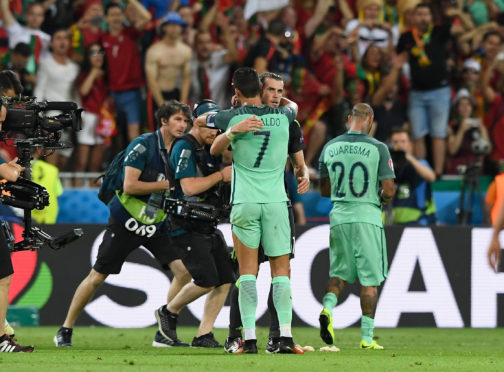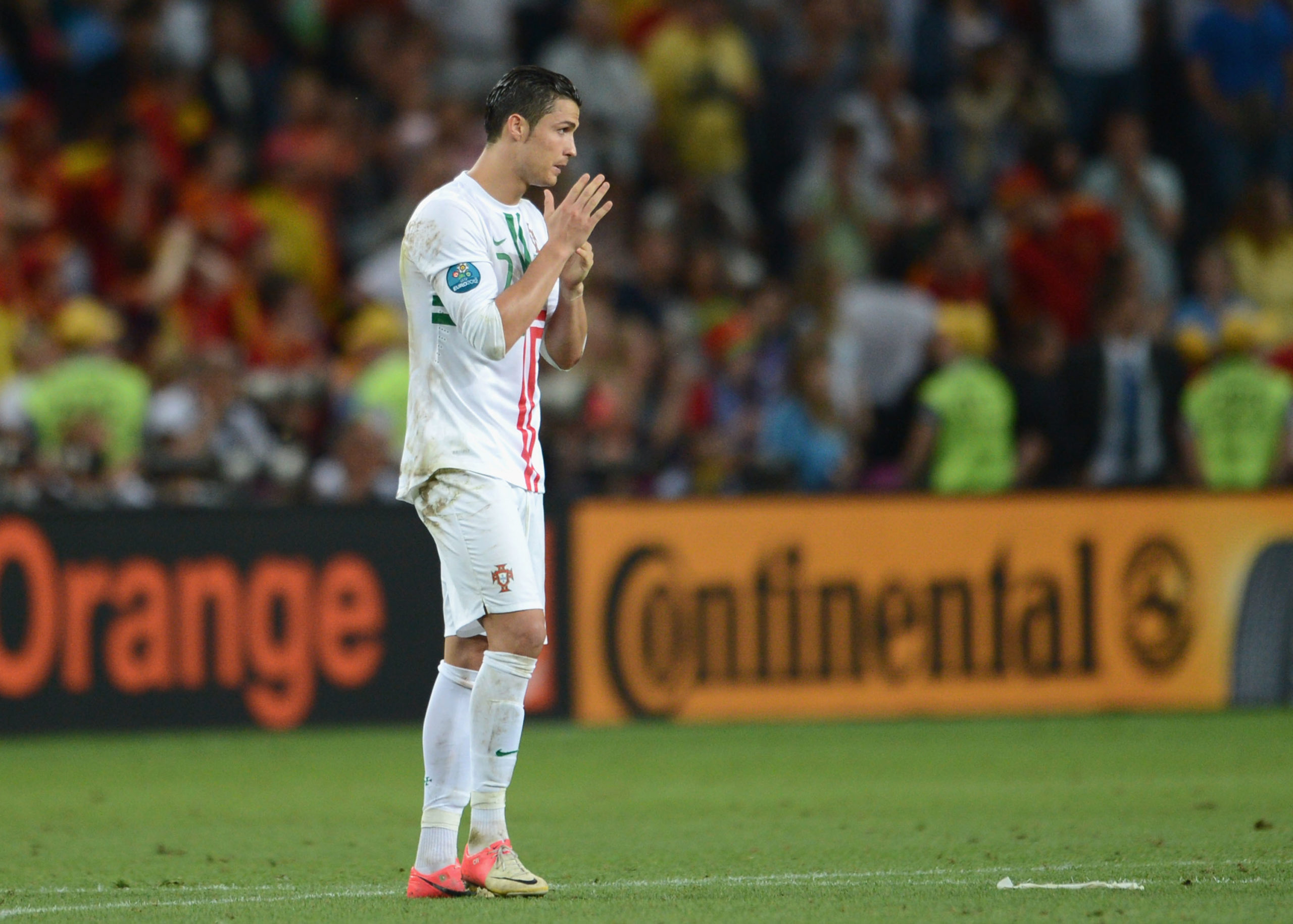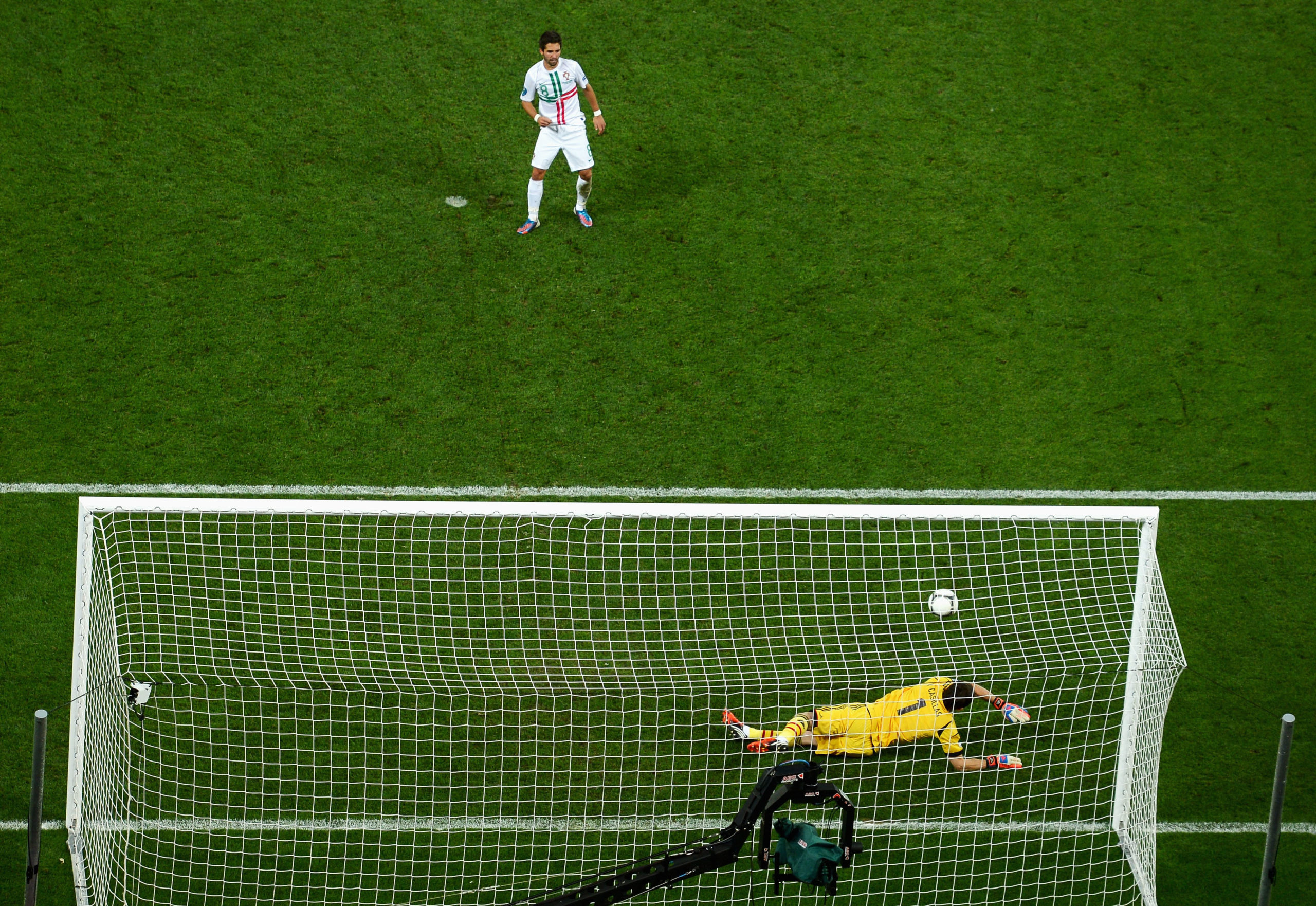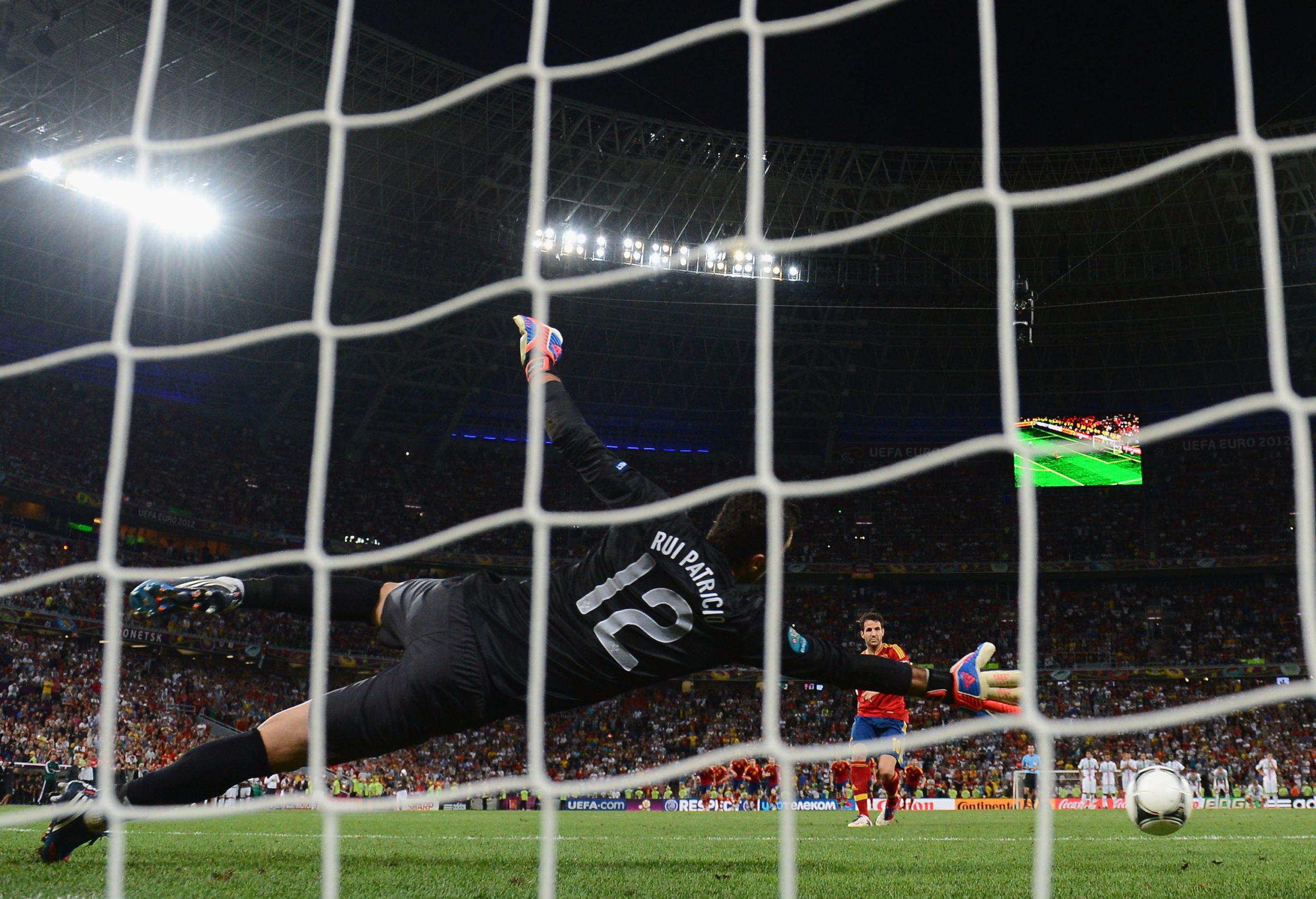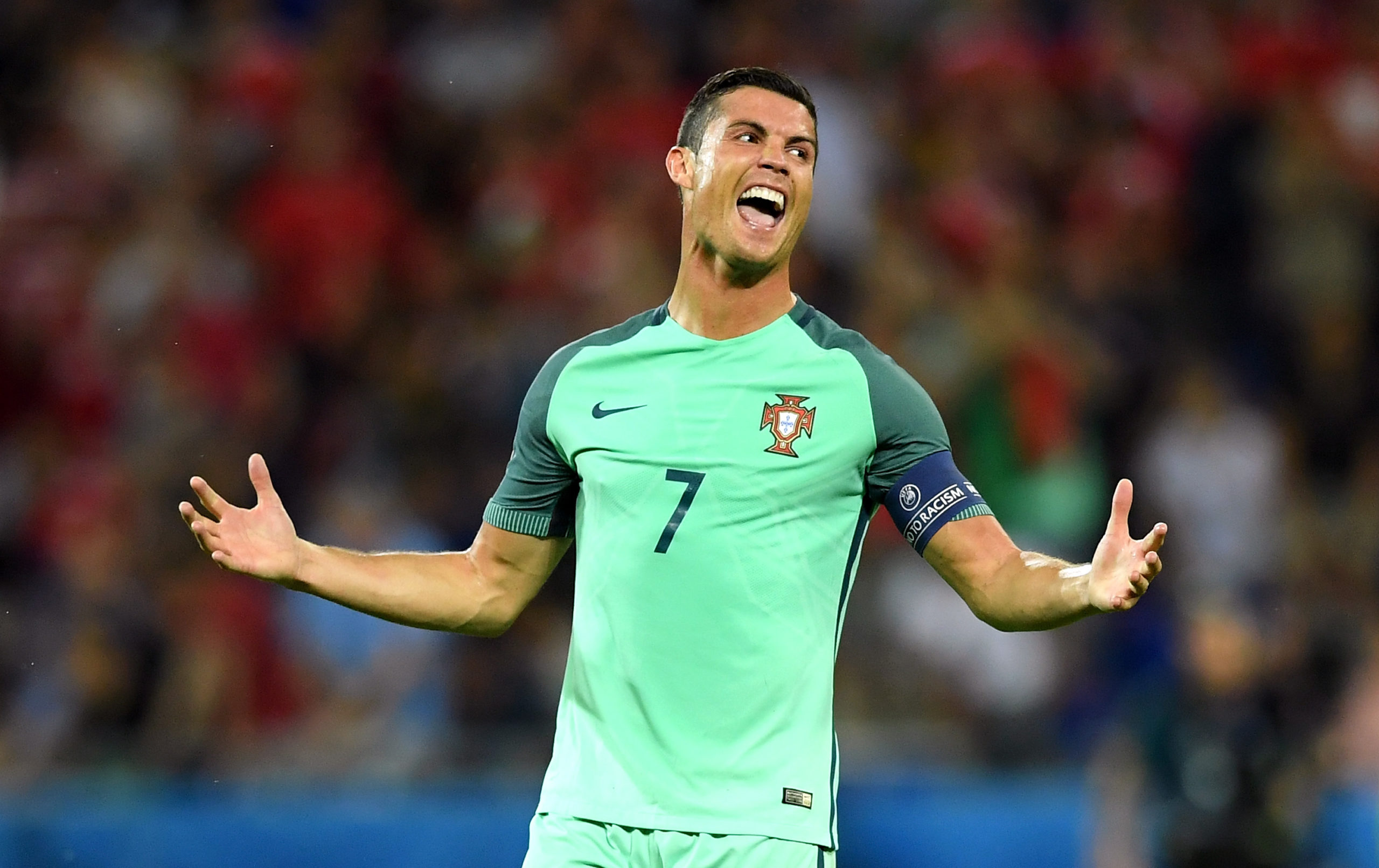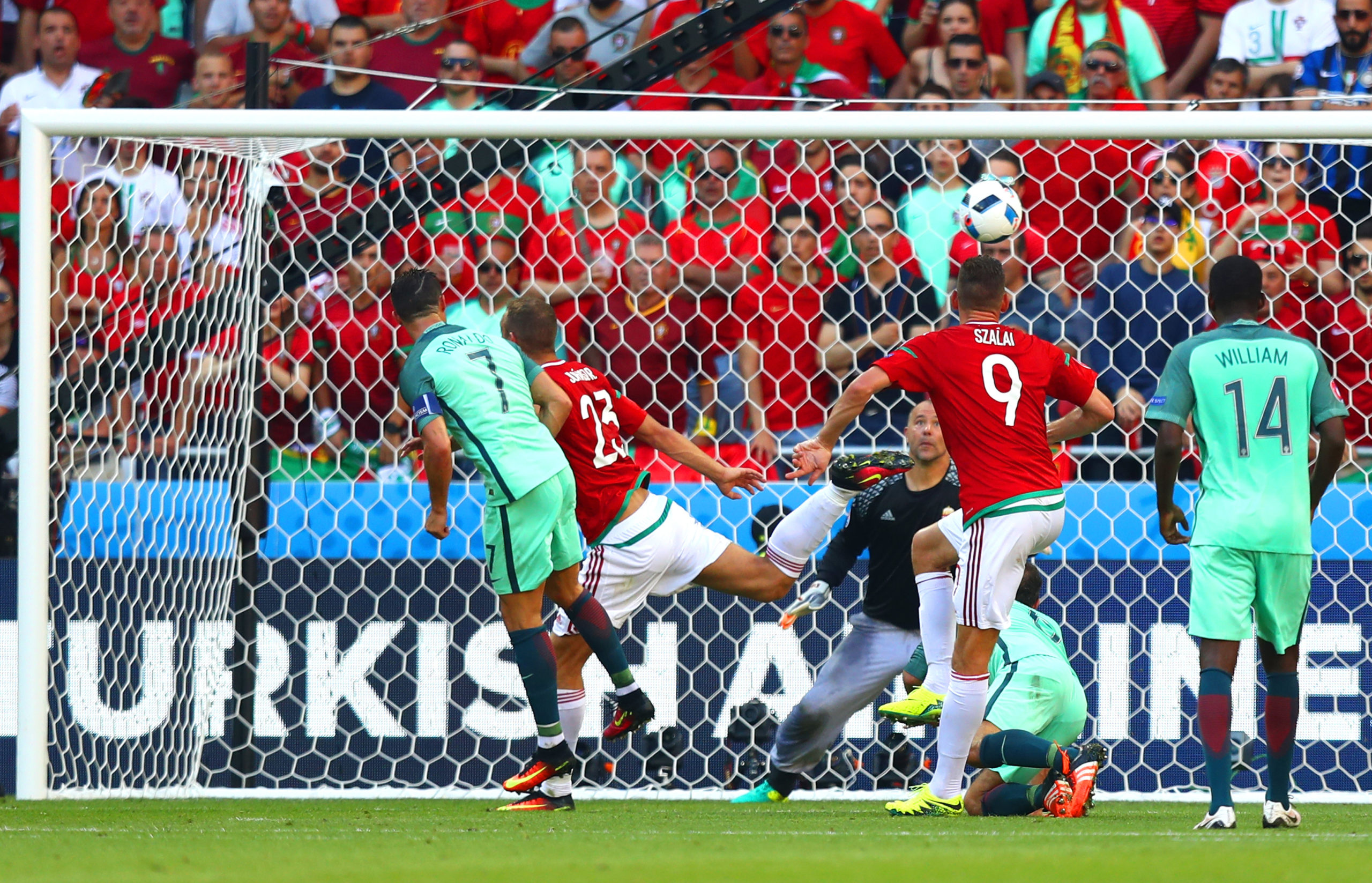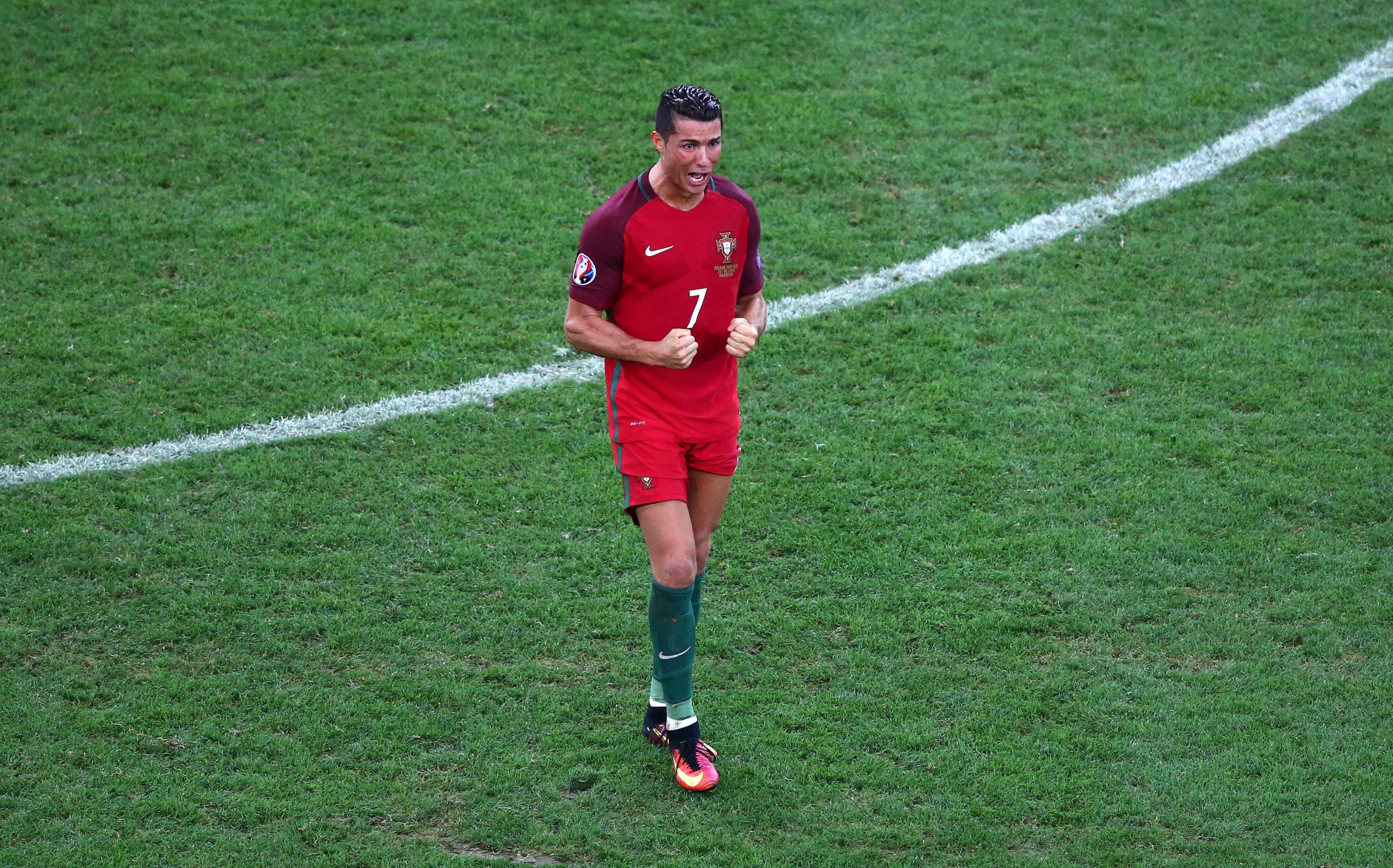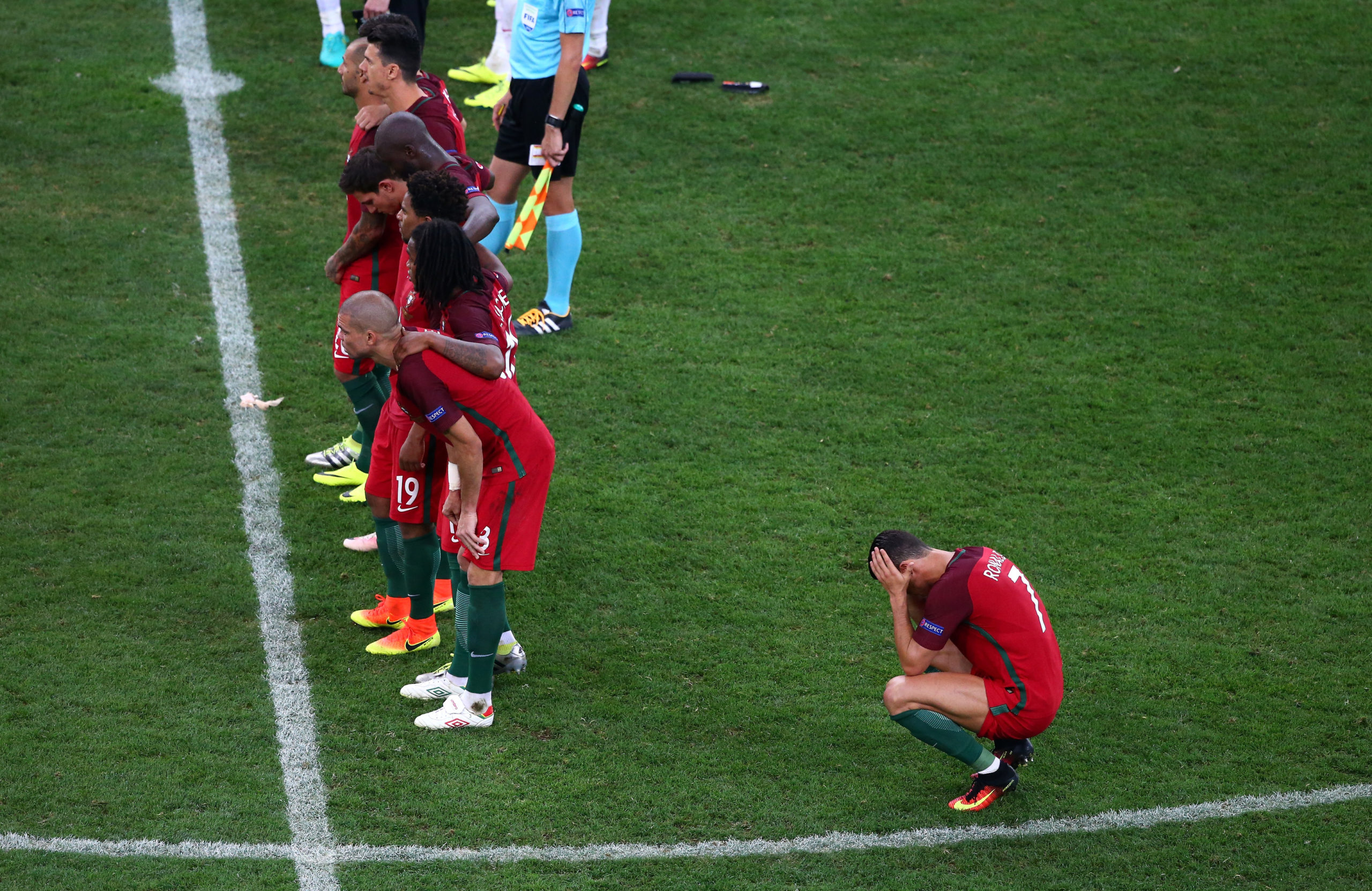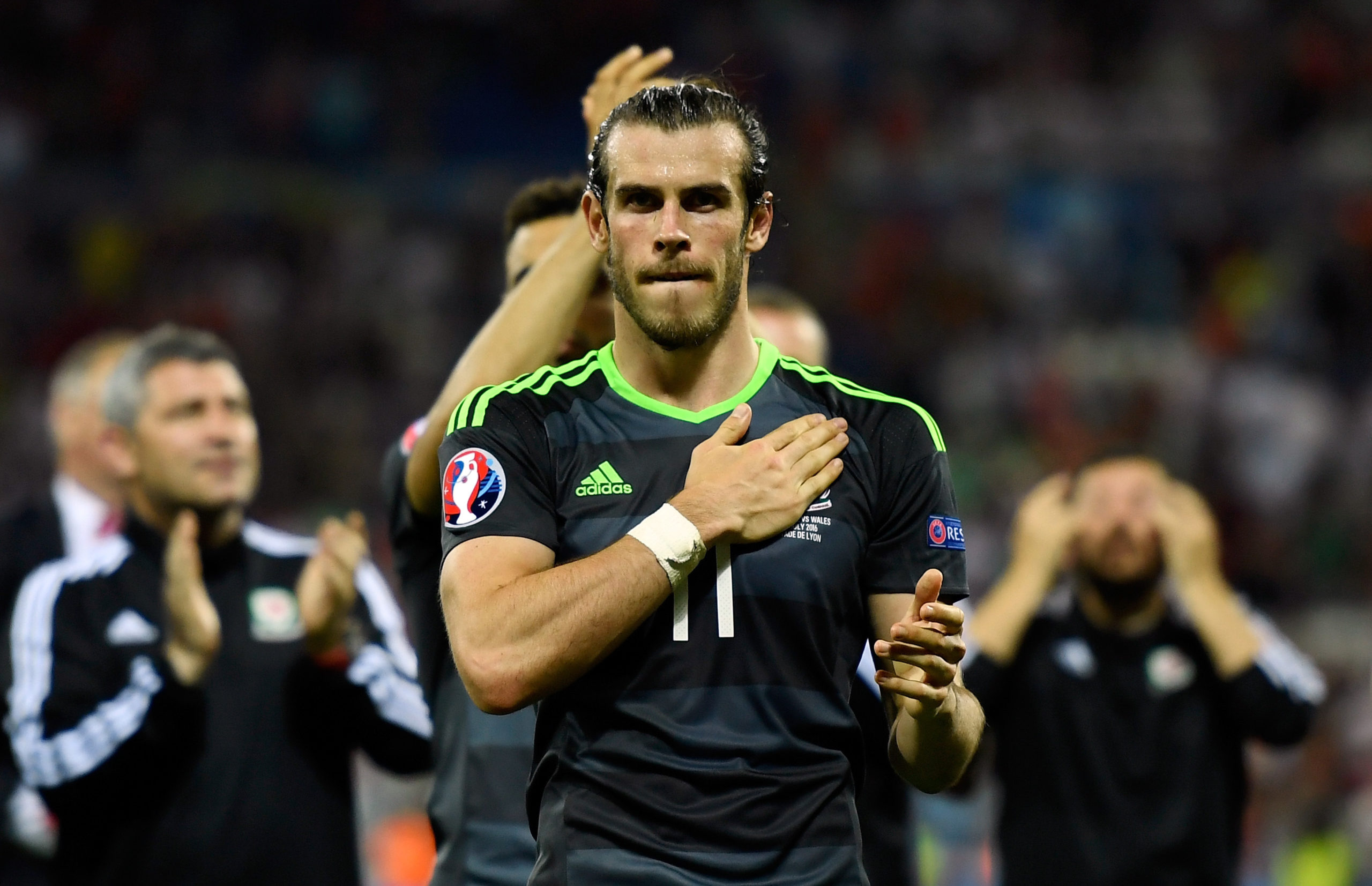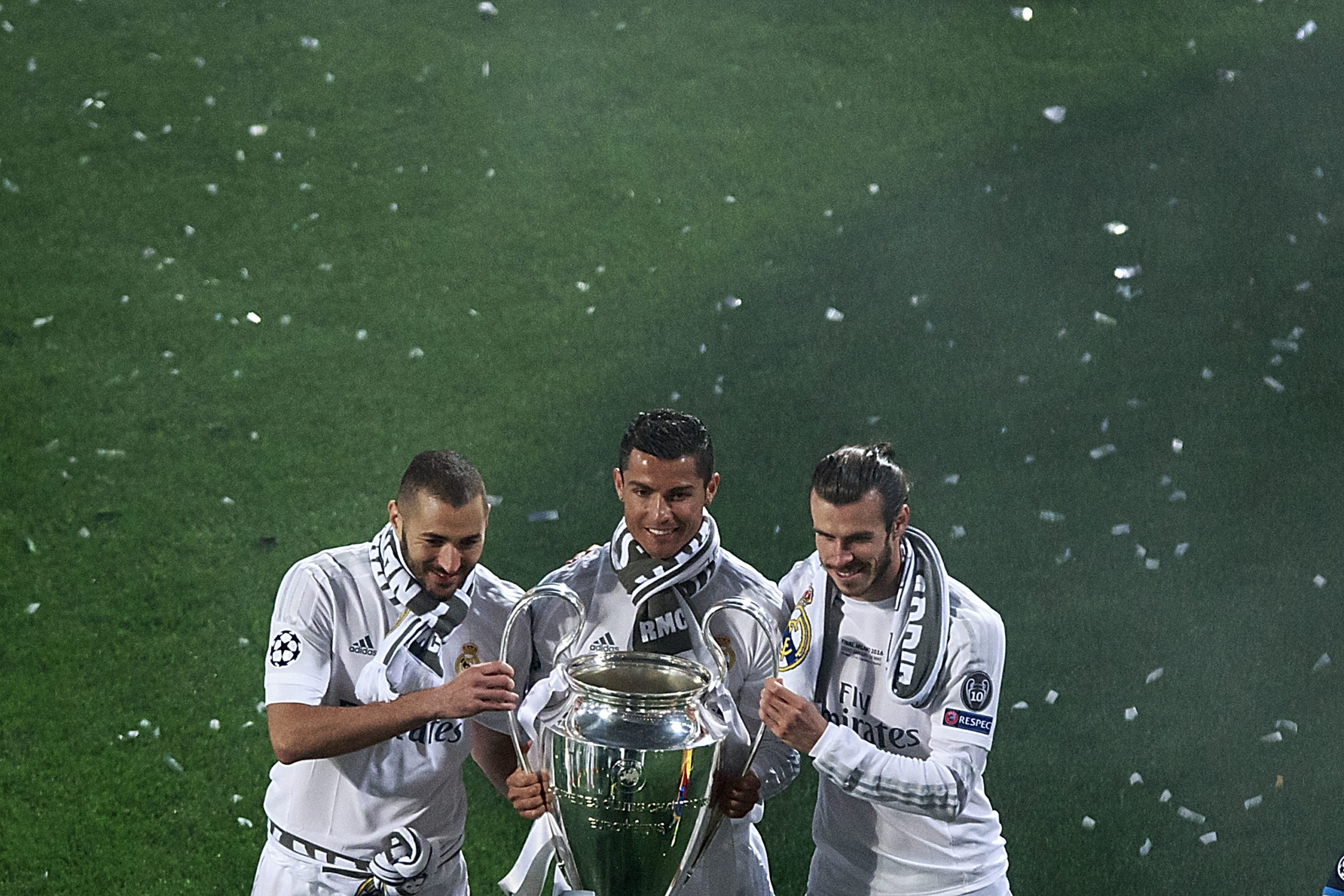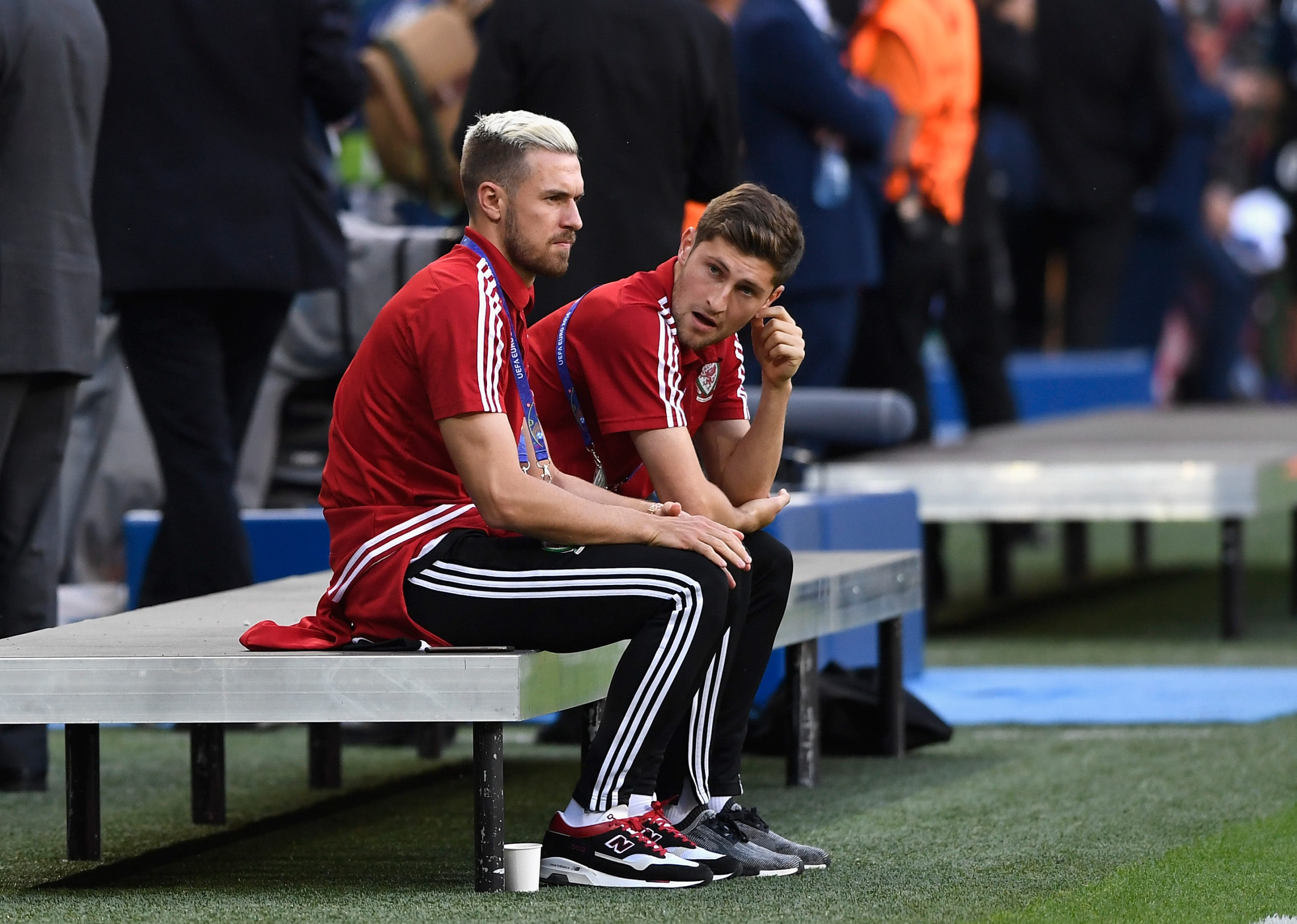At this stage of the last European Championship I was standing just yards away from Cristiano Ronaldo after Portugal lost the semi-final against Spain thanks to a penalty shoot out.
He’d accepted taking the fifth penalty – the one which never came.
It was an intriguing little scenario.
Reigning champion of Spain, multi-millionaire not only because of his Real Madrid salary, but because of his vast ability to look fashionable and handsome in pursuit of promoting products, he was dressed like a Baden Powell scout in the 1930s.
We were backstage, out of sight of the general media.
The Portugal press officer was firmly trying to persuade his national captain that he must walk through the media mixed-zone where dozens still waited although it was late at night and only Sergio Ramos had yet to appear.
Honestly, I suspected that Ronaldo’s garb, not defeat or controversy, was his reason for not wanting to walk the walk in front of the media.
Polo shirt buttoned up to the neck, long baggy shorts, not dissimilar to the kind Don Estelle would wear in the 1970’s TV series, It Ain’t Half Hot Mum, and then mad socks which were worn pulled up just below the knee.
Sheer, shimmery material like reinforced tights, too.
At the time, bereft as I am of any current fashion knowledge, and given that it was approaching 1.30am Donetsk time, I feared this ensemble represented some terrible mishmash of what the cool kids were wearing.
Already sympathetic to CR7 for the cynical opportunism in the media which was waiting to give it to him hot and strong for the alleged showboating of taking the fifth, Hollywood penalty – a cheap, know-it-all snideness which inhabits our profession and which still enrages me – I suspected he’d just seen a mirror and was filled with that ‘what the HELL was I thinking’ horror which occasionally affects us all.
The compression socks, it proved, were practical not a fashion choice, aimed at avoiding muscle fatigue.
But the press officer persuaded Cristiano and he did his duty.
That night he said: “My feeling is sadness.
“To lose a semi-final on penalties always hurts but it’s a lottery and the one who wins is the one with the most luck.
“I gave my best, as I always do so I’m satisfied with what I’ve done for the team.”
Off he strode, calves compressed, into the sad night.
Into a sustained blizzard of false accusations that he’d demanded the fifth penalty to A – avoid the pressure and B – to take the show penalty which would guarantee him a higher profile and a firmer part of footballing history.
They were falsehoods, both.
That night his manager, Paulo Bento, had asked him to take fifth penalty while Ronaldo had offered to go first.
That night Xabi Alonso kicked first, saw his effort saved, but Iker Casillas immediately saved João Moutinho’s penalty and La Roja went on to win via Cesc Fabregas’s goal – Spain’s fifth taker who had been scheduled to go second but, unlike Ronaldo, specifically asked to be moved to fifth.
No criticism of HIM, quite the opposite.
History remembers the winners, pardons them most sins and gleefully misrepresents the losers.
The reason for recalling all this, at a time when Spain hand over their European crown for the first time since 2008, is Ronaldo’s image.
I know, I know. Before pointing out, once again, that he’s often misrepresented, often misunderstood, it’s fair to put forward the idea that he may be his own worst enemy.
Unrepentantly theatrical on the pitch, showing extremes of joy, extremes of self-recrimination – almost embracing a caricature version of himself – he’s just not everyone’s taste.
But let’s try to be fair in marking his progress en route to this, his second European Championship final.
Firstly, his critics often portray him as a flat-track bully.
So powerful, so relentless, so quick to exploit sporting, athletic or tactical weakness that somehow his achievements should be weighted downwards.
Yet here in France he’s stepped up in adversity. Notably.
That barnstorming game against Hungary which threatened to put Portugal out in the group stages instead of scraping through, as a best-placed third team, was rescued with an assist and then two outstanding goals when trailing 1-0, 2-1 and 3-2.
Kudos to CR7.
His lung-busting last-seconds assist for the win over Croatia in an excruciating football match. But a win.
And despite his enormous goal and assist against Wales it’s the quarter final shoot-out win over Poland which most marks a measurable evolution.
One which his critics will be hypocrites unless they acknowledge.
Moutinho’s miss four years earlier made him hide in the Poland shakedown.
When the list was being made.
He doesn’t want to be on it.
Ronaldo demands to take first penalty this time – seizing responsibility rather than being denied it in 2012 by the coach’s decision.
But he also walks up to Moutinho, with the permission of coach Fernando Santos and tells the Monaco midfielder: “You’re going to take one, you take penalties well – come on, take it.”
“If you miss, then don’t worry.”
https://www.youtube.com/watch?v=b-SQ05R3vlA
And as Moutinho hesitantly does what his captain orders him to Ronaldo says: “Don’t worry, it’s in God’s hands now,” absolving the timorous Iberian of ultimate responsibility.
Captaincy, leadership, responsibility.
And, yes, Ronaldo, the ultimate Marmite player, would have been hung out to dry by many opportunists had Moutinho missed.
Unfair pressure, bad decision etc.
More, Ronaldo knew full well that the evidence was there on TV cameras. The bill for failure would have been his.
Watch the replays of Ronaldo praying, unable to watch, nerves jangling and you see an ordinary man – desperate to win, but unable to influence anything more than scoring his and ordering Moutinho not to be a scaredy cat.
Watch his goals, his assists, his leadership, his daily fun and evident team spirit and you know that this has been the Ronaldo par excellence.
#LiveBolanet Bersahajanya Cristiano Ronaldo, bahagianya ballboy. Salut! pic.twitter.com/0cJzxpWYC8
— Bola (@Bolanet) July 6, 2016
Look how the guy who wept in pain and shame when Portugal lost to Greece in the final of Euro 2004 has grabbed responsibility for putting his nation in the final after a long series of quarter and semi-final eliminations.
Like or loathe his image – don’t allow that to obscure his glimpses of greatness which, in times of staleness and risk aversion, have lit up this tournament.
You can rely on Bale in a crisis
Just before winning his second Champions League final a few weeks ago Gareth Bale told my friend and fellow Spanish football journalist Peter Jenson: “In the Premier League it is end to end but here teams come to the Bernabéu and they sit.
“And you have to learn a different style of play.
“The first season, no one really knew fully what I was about, so I was able to do the same thing I had done in the Premier League.
“In the second season they knew what I was about and they tried to nullify me.
“But I am so happy that season happened because I learnt a lot about my game and about the Spanish way of playing: keeping the ball and moving more intelligently.
“It’s because of that bad season, I think, that I have had such a good season this time.
“I have improved as a footballer.
“I feel there is variety in my game now.”
Although he won that showpiece final in Milan, providing both goal-assist and scoring his penalty when cramp meant that he could barely walk straight, it wasn’t truly against Atlético that he proved his self-assessment to be true.
It has been here, at the European Championships where he and his Wales side genuinely could have reached the final but for the suspension of Aaron Ramsey and Ben Davies.
He’s stood out not simply because of his talent and utterly enormous power and athleticism but because he’s now far shrewder about what he does, what his responsibilities are.
He can switch between a leader when Wales are on the attack, often against Russia and Belgium, or conserve the ball and battle it out – against England, Slovakia and Northern Ireland.
Even given what I’ve written alongside this, in praise of Ronaldo, Real Madrid’s increasing dilemma is now how to maximise Bale’s gigantic potential when it’s clear that he benefits from being a team’s go-to, principal player – a status which Cristiano both demands and has merited throughout his career.
